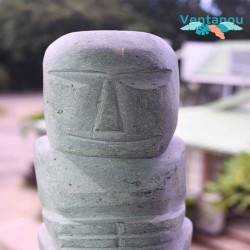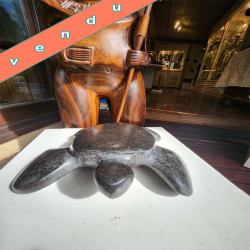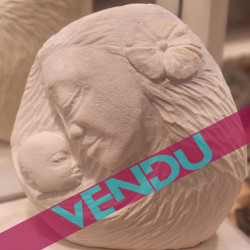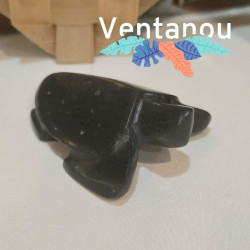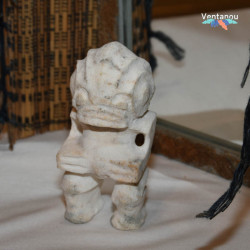 Stone Carving French Polynesia
Stone Carving French Polynesia
If you are drawn to Polynesian culture and art, are looking for authentic and original pieces to embellish your space, and want to satisfy your online shopping craving, this online store is for you! Whether you want to decorate your home with sculpture: arts and crafts from French Polynesia, find a zen garden equipped with cultural silhouettes, or find a unique and symbolic souvenir to give as a gift, Ventanou will guide you.
Our local partners invite you to explore the world of tikis, the emblematic sculptures in wood or stone that embody the gods and ancestors of Polynesia. Discover their origin, meaning and importance in Polynesian culture. Ventanou will also share tips on how to find affordable stone tikis, and how to maintain them to preserve their beauty and magic.
Are you ready to discover the hidden wonders of Polynesia? Follow the guide!
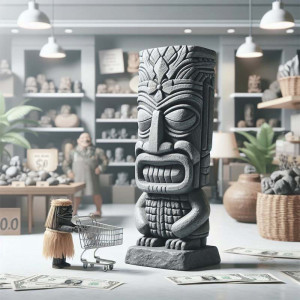
The hidden wonders of Polynesia: The origin and significance of tikis
Tikis, sculptures in wood or stone, embody the gods and ancestors of Polynesia, testifying to a rich culture and deep spirituality. These mysterious figures are at the heart of the history of the Pacific islands.
Understanding tiki culture
Derived from Maori, the language of New Zealand's first inhabitants, the term 'tiki' refers to the first man according to mythology, as well as the statues representing him. According to legend, the god Tane molded the first tiki from the red mud of the earth, giving it life by opening its eyes. This tiki is considered the father of humanity and the mediator between gods and men.
From Tahiti to Hawaii, via the Marquesas Islands, tiki culture has flourished throughout Polynesia, each island cultivating its own style while sharing a common respect for these sacred statues.
The symbolism of tikis in Polynesian society
In Polynesian society, tikis are much more than just statues. They symbolize the connection between man and nature, the cosmos, and the cycles of life and death. They represent power, wisdom, wealth and fertility.
These figures are considered vectors of mana, a powerful spiritual force, making them protectors and sources of good fortune. Beyond their spiritual role, tikis also serve as links to Polynesian history and identity, honoring ancestors in rituals designed to solicit their help.
Different types of tiki and their meaning
Each tiki, distinct in shape, size and expression, conveys a unique message. Here are some notable examples:
The smiling tiki, symbolizing joy and love, is found on the island of Raivavae.
The reclining tiki (Tiki Taua Pepe), embodying fertility, represents a woman in labor on Ua Huka.
The slender tiki (Tiki Manuiotaa), representing resistance, whose head was restored by archaeologists in Nuku Hiva.
The headless tiki (Tiki Te Tovae E Noho), with its six fingers, evoking singularity, also on Nuku Hiva.
How to find inexpensive Polynesian stone tikis?
For those captivated by the idea of acquiring a low-cost Polynesian stone tiki to add an exotic touch to their home or garden décor, but unsure of where to start, here's a comprehensive guide. Ventanou will share with you some tips on how to find authentic, quality and affordable tikis, as well as how to make the exceptional discovery of carving and engraving in Tahiti and its islands, without breaking the bank.
The importance of authenticity and how to verify it
Choosing an authentic Polynesian tiki means opting for a piece that respects Polynesian traditions and culture. This includes tikis hand-carved by local artisans, using traditional materials and tools, and faithfully representing the various symbols of this culture.
To ensure the authenticity of a tiki, find out more about its history and meaning. Authentic tikis are characterized by their unique appearance, far removed from overly perfect or industrial productions.


